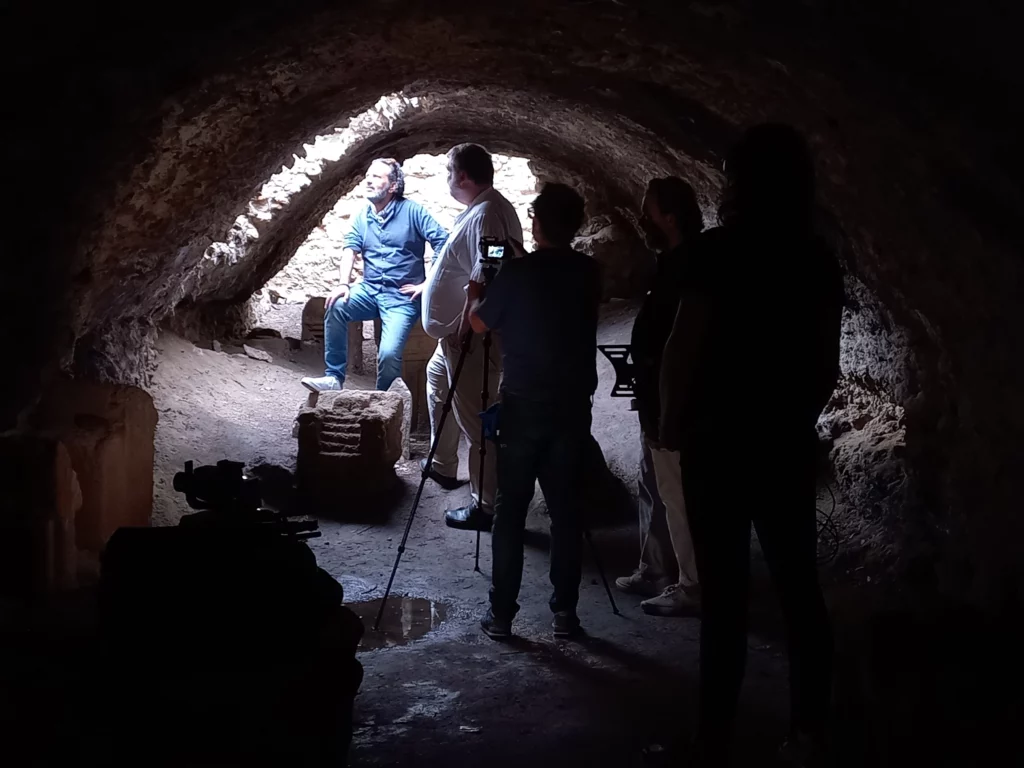Tunisia, a beacon of culture, history, and economy in North Africa, is a land where ancient empires and modern progress converge. With its sun-drenched landscapes and rich heritage, Tunisia is not only a haven for tourists but also a fertile ground for investment and entrepreneurial ventures. This unique country offers a blend of ancient traditions and modern vibrancy, making it a must-visit destination for anyone interested in exploring the depth of human civilization, contemporary culture, and economic opportunities.

Carthage Ruins
Tunisia’s Cultural and Economic Journey: A Blend of Ancient Traditions and Modern Vibrancy
The Melting Pot of Tunisia: A Cultural and Economic Convergence
In Tunisia, the rich tapestry of Berber, Arab, and European influences creates a cultural mosaic that is both vibrant and enduring. The medinas of Tunis and Sousse are living museums, echoing the past with every step. Here, the scent of traditional bread and the sound of looms crafting textiles tell the story of a people rooted in tradition yet moving forward with the times. These medinas, with their winding alleys and bustling souks, provide a snapshot of Tunisia’s historical blend of cultures and its evolution through centuries, while also being hubs of local economic activity.
Tunisia’s Festive Spirit: A Celebration of Heritage, Creativity, and Economy
Tunisia’s cultural vitality is showcased in its festivals, which are a vibrant celebration of its enduring creative spirit. The International Festival of Carthage, held in the ancient amphitheater of Carthage, and the Djerba Film Festival, hosted on the picturesque island of Djerba, are just two examples of events that bring the world to Tunisia’s doorstep. These festivals highlight Tunisia’s role as a cultural nexus, attracting artists, filmmakers, and performers from around the globe. Through music, film, and traditional arts, these events celebrate the rich heritage and contemporary creativity of the Tunisian people, while also contributing significantly to the local economy through tourism and international engagement.
Museums of Tunisia: Windows to a Rich Past and Economic Potential
Tunisia’s museums, like the Bardo Museum in Tunis, are custodians of history, offering insights into the Phoenician, Roman, and Islamic eras. The Bardo Museum, housed in a former palace, boasts one of the world’s finest collections of Roman mosaics, alongside artifacts from Tunisia’s long and varied history. Other institutions, such as the National Archaeological Museum of Carthage and the Dar Ben Abdallah Palace, also preserve and present Tunisia’s multifaceted heritage. These museums provide visitors with a deep understanding of the country’s historical and cultural evolution, making them essential stops on any cultural tour of Tunisia. Additionally, they play a role in the economy by attracting cultural tourism and providing employment opportunities in the heritage sector.
Tunisia’s Historical Landscape and Economy: A Testament to Time
Carthage: A Glimpse into Tunisia’s Ancient Dominance and Economic Heritage
The ruins of Carthage stand as a testament to Tunisia’s historical significance, a reminder of the time when it was a center of power and innovation in the Mediterranean. Carthage was once one of the greatest cities of antiquity, a rival to Rome, and its remnants, including the Byrsa Hill, the Antonine Baths, and the Punic ports, offer a glimpse into its grand past. Exploring Carthage is like stepping back in time to an era of great wealth, architectural splendor, and political might. The historical site also plays a part in Tunisia’s economy by drawing tourists from around the world, thus supporting local businesses and services.
El Jem: The Colosseum’s Legacy in Tunisia’s Historical and Economic Tapestry
El Jem, with its majestic Roman Colosseum, continues to be a symbol of Tunisia’s rich historical tapestry, drawing visitors from around the world to witness the grandeur of a bygone era. This massive amphitheater, one of the best-preserved in the world, could seat up to 35,000 spectators and was the site of gladiatorial contests and public spectacles. The sheer scale and preservation of the Colosseum make El Jem a key highlight for those interested in Roman history and architecture. Moreover, the site is a cornerstone of the local economy, boosting tourism-related activities and services.
Tunisia: A Modern Landscape for Business, Innovation, and Economy
While deeply rooted in its rich cultural and historical past, Tunisia is also making strides in the modern world, becoming a hub for business and innovation in North Africa. The country’s strategic location, educated workforce, and government initiatives to attract foreign investment make it an attractive destination for entrepreneurs. The burgeoning tech scene in Tunis, the capital, is a testament to Tunisia’s forward-looking spirit, blending modern innovation with its rich historical backdrop. These advancements contribute to the overall economy by creating jobs, fostering entrepreneurship, and integrating Tunisia into the global economic landscape.
Conclusion
Tunisia, with its vibrant cultural heritage, significant historical landmarks, and dynamic economy, offers a unique and enriching experience for visitors. The country’s festivals, museums, and ancient sites like Carthage and El Jem provide a deep dive into its past, while its modern advancements showcase its potential for the future. Whether you are a history enthusiast, a culture aficionado, or an entrepreneur looking for new opportunities, Tunisia stands out as a beacon of culture, history, and economy in North Africa, promising a journey that is both enlightening and inspiring.
